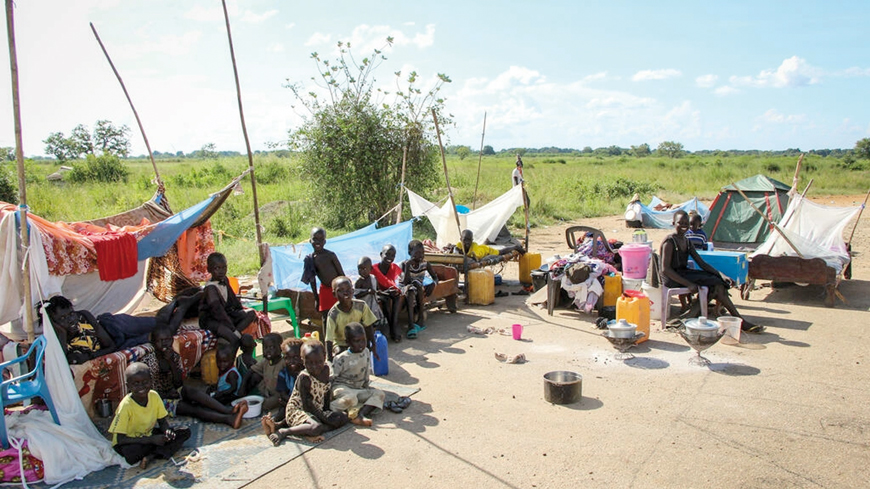JUBA — More than 7.7 million South Sudanese, around 63 per cent of the population, are facing a food crisis as violence intensifies in the country, the government and United Nations said on Saturday.
The figure marks a seven percent hike on the figure reported last year.
According to the joint report, which was presented to the press on Saturday, climatic shocks such as floods and droughts, and population displacements are contributing to the increased food insecurity, as well as the ongoing armed clashes.
South Sudan — the world’s newest nation — has suffered from chronic instability since independence in 2011, spending almost half of its life as a nation at war.
The country was in 2013 plunged into a brutal five-year civil war between forces loyal to President Salva Kiir and veteran opposition leader Riek Machar.
The war cost almost 400,000 lives and uprooted millions from their homes.
Two years ago, the two men formed a unity government, cementing a peace deal signed in 2018 that brought an end to the conflict.
But since then, South Sudan has lurched from crisis to crisis, battling flooding, hunger, as well as violence and political bickering as the promises of the peace agreement have failed to materialise.
The UN has repeatedly criticised South Sudan’s leadership for its role in stoking violence, cracking down on political freedoms and plundering public coffers.
“We will continue to have the situation we have in South Sudan if we don’t start to make that transition to ensuring peace at the community levels,” Sara Beysolow Nyanti, the UN humanitarian Coordinator in South Sudan said, adding “we do see sub-national violence”.
“Until conflict is addressed we will continue to see these numbers increase because what it means is that people do not have safe access to their lands to cultivate,” Adeyinka Badejo, World Food Programme Acting Country Director in South Sudan told AFP.
“We appeal to the leaders of the country to continue towards the path of peace.”
On Friday, fresh fighting erupted between government and opposition forces, just days after both sides pledged to uphold a ceasefire and try to save a teetering peace deal.
The clashes in oil-rich Unity State were the latest in recent weeks between forces allied to Kiir and those loyal to his deputy Machar.
According to Saturday’s report, 80 per cent of the population who are suffering food crisis are in the Unity, Jonglei, Upper Nile, Warrap, and Eastern Equatoria states.
